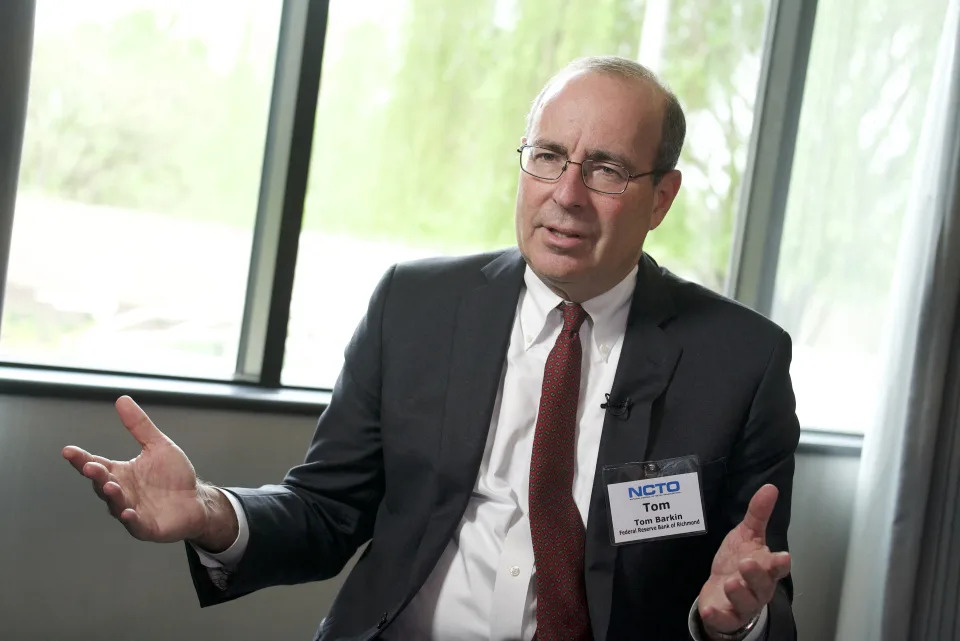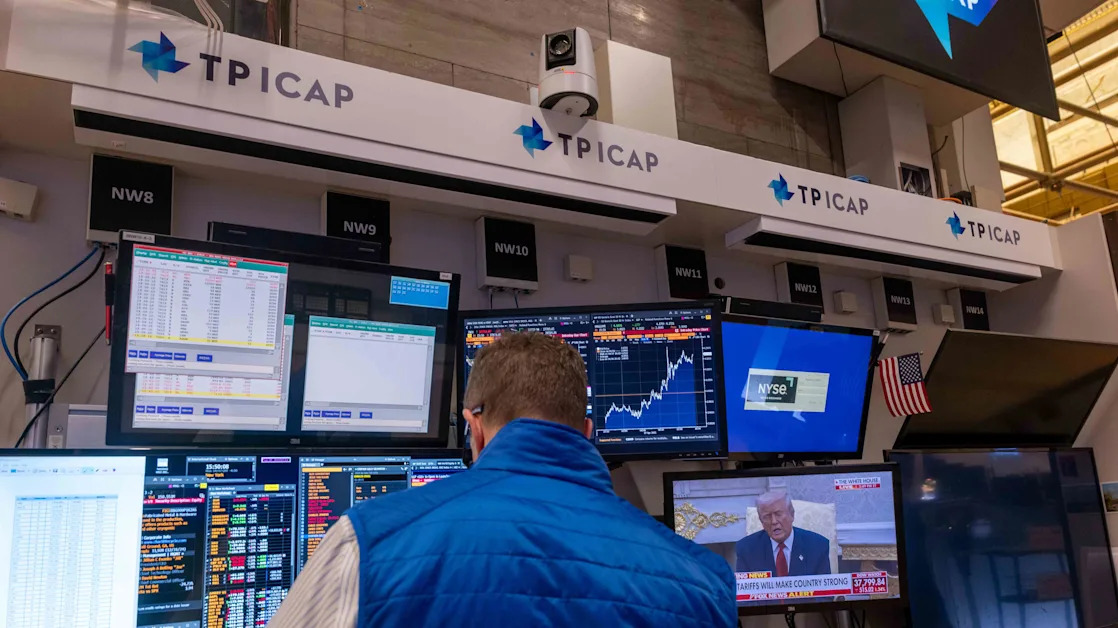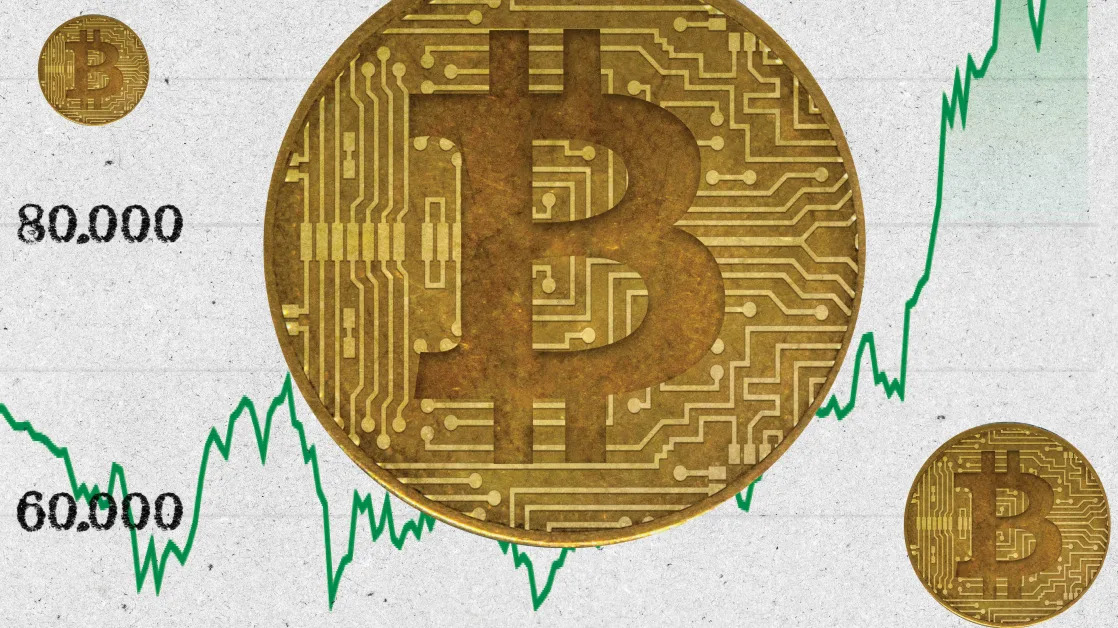Richmond Fed president Tom Barkin said Friday that he expects inflation will continue to drop into next year — stickier inflation data aside — and hinted at slowing down the pace of rate cuts.
“I expect to see core inflation come down,” Barkin said in an interview with Yahoo Finance. (Watch a clip above or the full interview here .) “I am still seeing progress.”
Barkin chalked up the recent flat readings on core inflation to tougher comparisons from the prior year and thinks inflation readings in the first quarter could look better since the first quarter of this year showed higher readings, which gave officials pause.
He also says that in talking to people on the ground, he's found consumers are buying on promotion, trading down, and going to lower-priced stores, sending messages to businesses that their pricing power is limited.
“I'm seeing that roll out as I test with businesses what they're planning for the first quarter in terms of price increases. I'm not hearing the kind of inflation we've seen in the past and that gives me hope that as we get through the first quarter, those numbers will come down.”
October inflation readings out this week have shown little progress toward that target, calling into question how deeply the Fed will cut interest rates in 2025.
On Wednesday, the "core" Consumer Price Index (CPI), which strips out the more volatile costs of food and gas, showed prices increased 3.3% for the third consecutive month during October.

Then, on Thursday, the "core" Producer Price Index (PPI) revealed prices increased by 3.1% in October, up from 2.8% the month prior and above economist expectations for a 3% increase.
Fed Chair Jay Powell estimated that, based on the CPI and other data released this week, the Fed’s preferred gauge of inflation — the core Personal Consumption Expenditures (PCE) index — rose 2.8% for the month of October. That would mark a tick up from 2.7% in September and August.
Investors are showing less confidence the central bank could cut rates in December following the warmer inflation data and a solid retail sales report that may show the economy is strong and doesn't need rate cuts . Investors were pricing in a roughly 60% chance Friday afternoon the Fed will cut rates by a quarter point next month, up from 55% earlier in the day but down from above a 70% chance Thursday before Powell spoke.
Barkin declined to comment on whether the Fed would cut rates in December, noting that the Fed is “restrictive enough” right now. But he did offer some hints on the pace of the rate-cutting campaign.
We asked Barkin what a strong economy and solid consumer spending could mean for the pace of rate cuts. Barkin said in a world where Fed officials are uncertain about what level rates need to come down to, along with an uncertain forecast for the economy, “you probably do want to be a little bit more careful.”
Barkin also said he thinks of cutting rates in two phases: recalibration and normalization. The last couple of meetings, he said, constituted recalibrating.
“You're going to have to then turn to normalization when you start to normalize rates,” said Barkin.
He referenced a speech Dallas Fed president Lorie Logan gave on Wednesday in which she compared the Fed’s rate-cutting cycle to a ship captain proceeding cautiously while nearing the harbor.
Barkin said he liked how she talked about “slowing the boat down as you approach the dock.”
When asked about President-elect Donald Trump’s proposed across-the-board tariffs and whether they could be inflationary, Barkin said it’s hard to know the impact on inflation, since “we're a long way away from knowing what we're going to have in tariffs, how big they're going to be, whether we have retaliation or not.”
However, he noted that if the cost of goods coming into the country is increased, then that cost will at least in some part get passed on.
Jennifer Schonberger is a veteran financial journalist who has covered markets, the economy and investing. At Yahoo Finance she covers the Federal Reserve, cryptocurrencies, and the intersection of business and politics. Follow Jennifer on X @Jenniferisms





